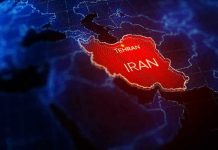
Black Lives Matter Grassroots organization is now demanding that white Americans pay “reparations” directly to them as the movement faces dwindling financial support and growing public skepticism about its impact on racial equality.
Key Takeaways
- BLM Grassroots issued a Juneteenth press release demanding white Americans provide monetary reparations amid funding shortfalls
- A Pew Research poll indicates most Americans believe the BLM movement has not delivered meaningful benefits for black people since George Floyd’s death
- Washington DC’s “Black Lives Matter Plaza,” once declared “permanent,” was dismantled in April 2025, signaling waning public support
- The organization specifically instructed white people to “pay reparations” through financial contributions or acts of service
- Juneteenth celebrations across the country have been reduced due to funding shortfalls as support for DEI initiatives declines
BLM’s Direct Appeal for Money from “White Folks”
As public interest in racial justice initiatives continues to fade, Black Lives Matter Grassroots has launched a direct appeal for financial support from white Americans. In a Juneteenth press release boldly titled “JUNETEENTH IS OUR BLACK JUBILEE,” the organization called upon “white folks” to provide monetary reparations, framing it as a moral obligation rather than a charitable contribution. This move comes as BLM and similar organizations face increasing financial challenges, with many Juneteenth celebrations across the country being scaled back or canceled entirely due to funding shortfalls.
“The press release defied that dwindling interest and was headlined ‘JUNETEENTH IS OUR BLACK JUBILEE,'” said Black Lives Matter Grassroots.
The demand for reparations specifically targets white Americans, whom the organization claims continue to benefit from “white-supremacist capitalism.” The press release provides multiple suggested forms of payment, including direct financial contributions, providing services, or volunteering time to support the organization’s activities. Notably, the language used in the appeal makes clear that these contributions should be viewed as a form of restitution rather than charitable giving, emphasizing a sense of obligation rather than voluntary support.
Public Opinion and Symbolic Retreats
The timing of BLM Grassroots’ appeal for financial support comes as public opinion data suggests Americans are increasingly skeptical about the movement’s effectiveness. According to a recent Pew Research Center poll, a majority of American adults believe the Black Lives Matter movement has failed to deliver meaningful benefits for black Americans in the years following George Floyd’s death. This represents a significant shift in public perception since the height of the racial justice protests in 2020, when corporate America and political institutions rushed to align themselves with BLM’s messaging.
Perhaps the most visible sign of this shifting sentiment was the April 2025 removal of “Black Lives Matter Plaza” in Washington, DC. This space, which was created during the 2020 protests and declared a “permanent” installation by the city’s mayor, was dismantled with relatively little public outcry. The plaza, originally renamed from Liberty Plaza, had become a contentious symbol during the 2020 election season, with supporters viewing it as a necessary statement and critics considering it divisive political messaging rather than a unifying public space.
“Rep. Andrew Clyde (R-GA), the congressman who sparked its removal, made his opinion clear during an appearance on Breitbart News Daily also calling it divisive,” said Rep. Andrew Clyde.
Cultural Boundaries and Financial Reality
Beyond the financial demands, the BLM Grassroots Juneteenth statement contained additional elements that underscore the organization’s perspective on racial dynamics. The press release explicitly discouraged non-black individuals from seeking inclusion in traditionally black cultural events like the “cookout” – a reference to social gatherings within black communities. This position establishes clear boundaries between racial groups while simultaneously demanding financial support from the excluded group, creating a dynamic that many critics find problematic.
The financial challenges facing BLM organizations reflect a broader shift in American attitudes toward diversity, equity, and inclusion (DEI) initiatives. Many corporations and institutions that enthusiastically embraced such programming in 2020 have quietly scaled back their commitments as public interest waned and shareholders questioned the business value of such initiatives. The resulting funding shortfall has left organizations like BLM Grassroots seeking alternative revenue sources, including direct appeals to individual white Americans framed in the language of moral obligation.
As President Trump’s administration continues to reshape the national conversation on race relations, the future of organizations like BLM Grassroots remains uncertain. Their latest appeal for reparations highlights both the financial challenges they face and the ideological framework through which they view racial reconciliation – one that appears increasingly at odds with mainstream American perspectives on addressing historical inequities through collective progress rather than direct financial transfers based on racial identity.




